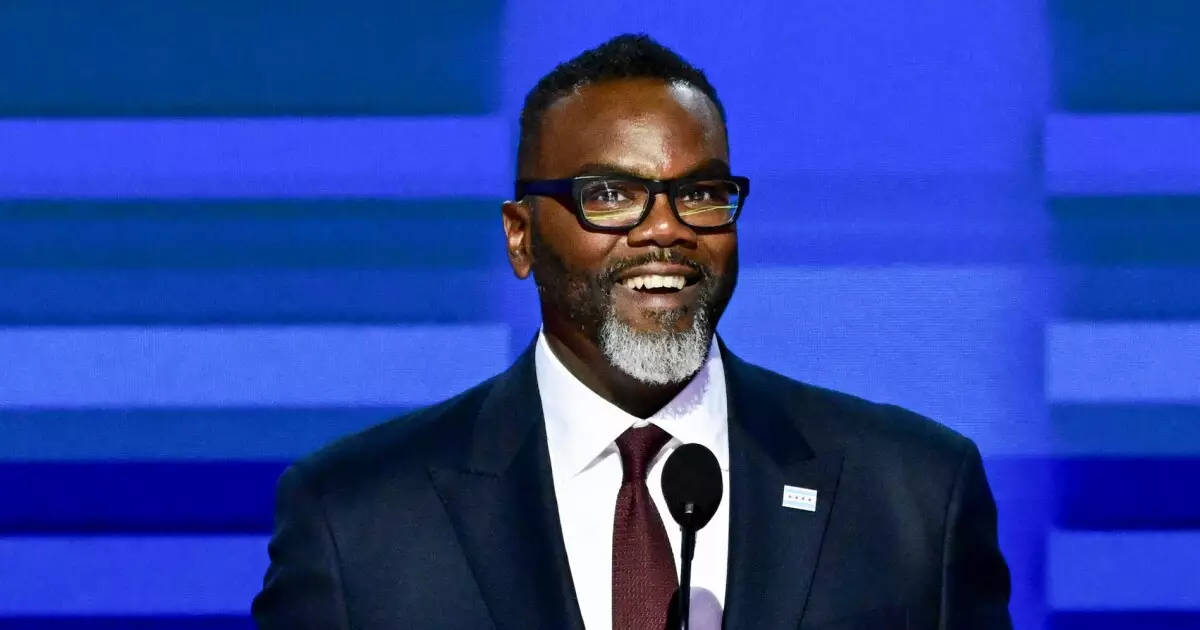Analyzing Chicago’s Fiscal Future: Challenges and Opportunities

In a recent budget forecast, the city of Chicago revealed a concerning projection indicating that its corporate fund deficit could escalate dramatically. By the end of 2025, the deficit is anticipated to balloon to approximately $982.4 million, an alarming rise from the estimated $222.9 million expected by the end of 2024. This budget report, released under Mayor Brandon Johnson’s administration, outlines both pessimistic and optimistic future scenarios regarding the budget’s sustainability. The bleak outlook suggests a staggering $1.578 billion deficit in 2026 and an even graver $1.928 billion gap in 2027. In contrast, the upbeat prognosis envisions the discrepancies at $633.8 million and $702.6 million for those respective years.
While Chicago had experienced recent improvements in its fiscal landscape—thanks in part to pandemic relief funds and increased pension contributions—these new projections could deter investors and bond raters. According to Municipal Market Analytics, the extensive predicted deficit could severely test the market’s appetite for city bonds.
Causes of the Predicted Deficit
Several systemic issues contribute to this projected downturn. Analysts and experts have pointed out that the current economic landscape has noticeably weakened, potentially catching the mayor’s office off guard as it continues to push for new expenditures. Specifically, taxation reforms regarding how corporations handle operating losses have greatly affected revenue streams, along with state-level contributions for public pension reimbursements. Consequently, the city finds itself needing to address both revenue shortfalls and heightened expenditure demands to bridge the growing gaps in its budget.
An array of factors has impacted Chicago’s fiscal situation, from rising operational costs for public services to protracted negotiations over teachers’ contracts in the Chicago Public Schools (CPS). Additionally, challenges in managing transportation budgets through the Chicago Transit Authority (CTA) exacerbate the issues. Broadening city control might be necessary to generate additional resources, such as higher tolls or service taxes.
Despite these challenges, experts like Howard Cure suggest there is hope on the horizon, citing Chicago’s continued economic diversity as a silver lining. Significant projects, such as expansions in the U.S. Defense Department’s research labs and the quantum computing campus, signal future growth opportunities that could contribute to the city’s rejuvenation. Furthermore, the modernization of the United Center and O’Hare Airport illustrates ongoing investments that may strengthen the local economy.
However, potential impacts on the commercial real estate market will be under close scrutiny. Significant declines in office building valuations due to changing work patterns post-pandemic could lead to a further reduction in tax revenues, posing another obstacle for city budgets. As remote work has become more entrenched, the sustainability of office properties hangs in the balance, which has implications for property taxes and the overall financial health of the city.
Implications of the Migrant Crisis
Another pressing concern is the financial ramifications stemming from the ongoing migrant crisis. In 2024, Chicago underperformed its budget by roughly $70 million regarding migrant-related costs. The situation remains fluid, with the possibility of rising numbers as political dynamics shift closer to election season. This string of challenges will force the city to adapt and allocate resources more strategically.
The budget forecast introduces various potential solutions, including a proposed hiring freeze. Still, skepticism lingers as to whether this freeze would be universally applied or selectively adjusted based on departmental performance and needs. Moreover, continuous funding for pension obligations remains a pivotal point of contention. Will the city maintain contributions above the baseline threshold, or revert to less favorable debt restructuring techniques?
As discussions bubble to the surface regarding potential solutions, the city is also expected to manage property tax pressures. Following a significant increase this year to $1.77 billion, further strains on residential properties must be approached cautiously to avoid exacerbating the housing crisis residents currently face.
Nevertheless, attempts to instigate new taxes targeting the affluent have met fierce resistance and negative campaigning, causing these initiatives to flounder at the voting table. Greater transparency regarding the city’s strategies to balance its budget is essential for fostering trust and confidence among both residents and investors.
Chicago stands at a crossroads in its fiscal journey. The looming budget deficits illuminate the imperative for sustainable solutions—innovative strategies that move beyond temporary fixes. As the city grapples with pressing economic challenges, engaging stakeholders and residents in an open dialogue over potential reforms could prove pivotal in navigating this tumultuous terrain. The ultimate resilience of Chicago’s financial landscape will depend heavily on its ability to adapt, innovate, and strategize for a future that remains uncertain yet filled with possibility.





